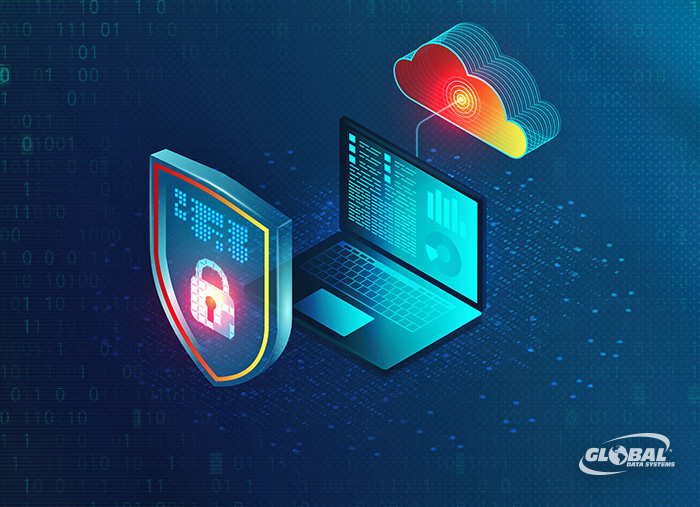Remote, Mobile Workforces Demand a Modern Endpoint Security Solution
The trend toward remote and mobile work was already picking up steam prior to 2020. The pandemic accelerated this shift and, in many cases, organizations didn’t have time to secure their endpoints. Today, employees are using their own devices and accessing resources through the cloud more than ever, but endpoint security is still lagging behind.

It should be no surprise that endpoints often represent the weakest link in the security chain.
This is why hackers are increasingly targeting mobile devices as a way to gain access to critical systems and infrastructure. Malware attacks have become more sophisticated, and some “fileless” attacks can’t be detected by conventional antimalware software.
What Is Endpoint Security?
Before we get into security, let’s clarify what an endpoint device is. Laptops, smartphones, and tablets are all endpoints, but any device that communicates with your network is considered an endpoint as well. That includes everything from printers and point-of-sale systems to medical devices and Internet of Things sensors.
The number of endpoints is increasing, and each endpoint is a potential entry point into your network, where sensitive data and high-value assets reside. Endpoint security is designed to detect and block cyberattacks and malicious activity that originate at the endpoint. It is an essential tool for protecting organizations against a potentially devastating security breach.
Drawbacks of Traditional Endpoint Security
A traditional endpoint security solution is typically hosted in an on-premises data center. Managed onsite, the solution provides protection by connecting with endpoints through an agent. The obvious drawback here is that endpoints can only be managed within the perimeter, which can create security silos and leave the endpoints of remote workers unprotected.
Additionally, traditional endpoint security solutions rely upon signature-based analysis to find known threats. They are unable to identify fileless attacks and polymorphic malware that mutates to avoid detection. They also scan files at the point of entry, and often miss stealth attacks that drop their payloads later.
How Modern Endpoint Security Works
A modern endpoint security solution can monitor endpoints, regardless of location, even when they’re not connected to the company network. For example, if employees are using their own devices for work, those endpoints are still visible and protected when offline or logged out of the network. This eliminates blind spots that would otherwise allow threats to go undetected.
Endpoints are often the weakest link in the security chain.
A centralized management console connects to endpoints through a lightweight agent on the endpoint, allowing for the inspection of all files and applications that enter the network. Security policies are applied to enable automatic threat detection and response.
While antivirus software runs in the background to detect known threats, new threat intelligence can be integrated automatically to enhance protection against new threats. Most modern endpoint security solutions use artificial intelligence to learn from new threats and data and improve protection in real-time. They also examine files and processes continuously in order to identify, mitigate, investigate and analyze threats that get past perimeter defenses.
GDS Can Help
Although technology automates ongoing monitoring, threat detection, and other capabilities, humans are still needed to set up an endpoint security solution and keep it functioning properly. GDS can help you choose the right solution and ensure it meets your organization's specific needs. We also provide around-the-clock monitoring and management and rapid response to security incidents. Contact us today to schedule a consultation.
Benefits of Managed IT Services from Global Data Systems
- Strategic Managed IT: We help you solve your technology related business problems.
- Connectivity: We get you reliable, secure connectivity anywhere in the western hemisphere in 48 hours.
- Support: When you need help simply call our 24x7x365 support number.
- Billing: Instead of managing hundreds of vendors - get one, easy to read bill from GDS.
Contact Managed Services Provider, Global Data Systems >
